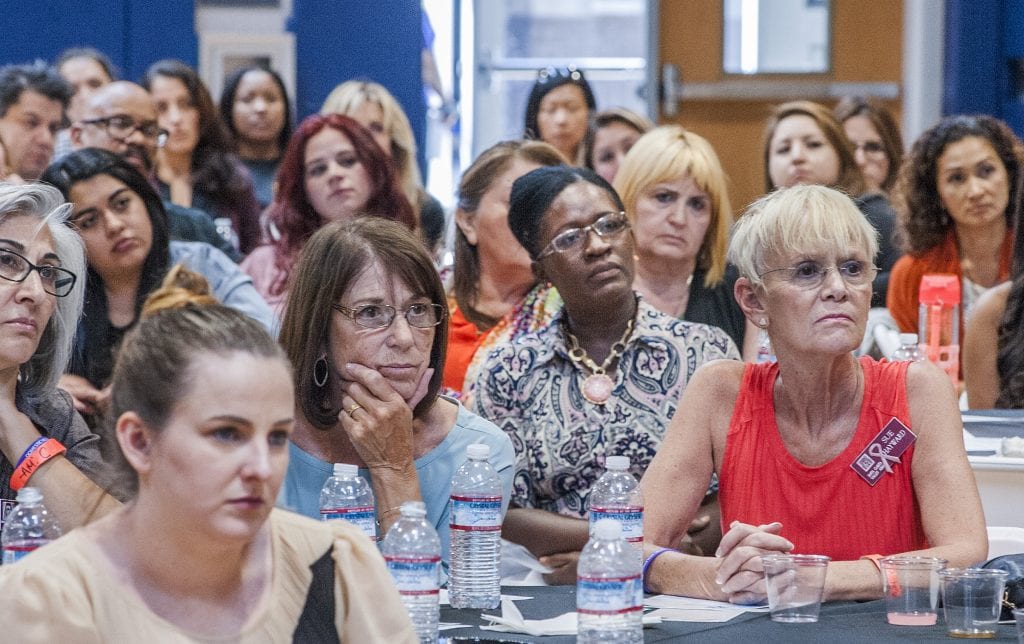For some local victims of domestic violence, leaving their home is a seen as a lose-lose situation.
The Domestic Violence Center has seen a decrease in numbers over the past few months because many victims who are immigrants are afraid of being deported if they step outside of their house.
Christy Ferguson, a case manager for both English and Spanish-speaking groups at the center, said she has seen a drop in her Spanish-speaking groups since President Trump came into office.
“My Spanish-speaking groups have diminished quite a bit,” Ferguson said. “They are afraid to leave their homes sometimes for fear of being deported.”
Prior to the inauguration, her groups saw about 15 to 20 members, but are now often as low as six and at the most 12.
Domestic Violence Center staff does not report people who are undocumented to Immigration and Customs Enforcement (ICE), but much of victims’ fear comes from threats from abusers, Ferguson said.
Some of these people receive threats from their batterers who say they will get them deported if they leave the house, according to Ferguson.
“If they can’t come here for support groups, they could be in danger to go back to their batterers,” she said. “They are very afraid, very intimidated, now more than ever.”
Staff keeps all information about clients confidential, including their legal status. Staff members are mandated reporters, but would only report someone who is a physical threat to themselves or others.
Victims are in a safe space once they get to the center, but it’s the trip from home to the center that they fear, she said. The center does not offer rides to their facility and that option has not been a topic of conversation up to this point, Ferguson said.
If someone needs transportation to the center, they are referred to the police.
“Many of them are afraid of the police,” Ferguson said. “We try to assure them that (police reporting them) isn’t going to happen.”
The center offers presentations on immigration, equipping victims with the tools and information to remain safe. Ferguson said they teach people their rights, including not opening the door if ICE comes to their house, their right to remain silent and their right to an attorney.
661-287-5525
On Twitter as @ginaender








